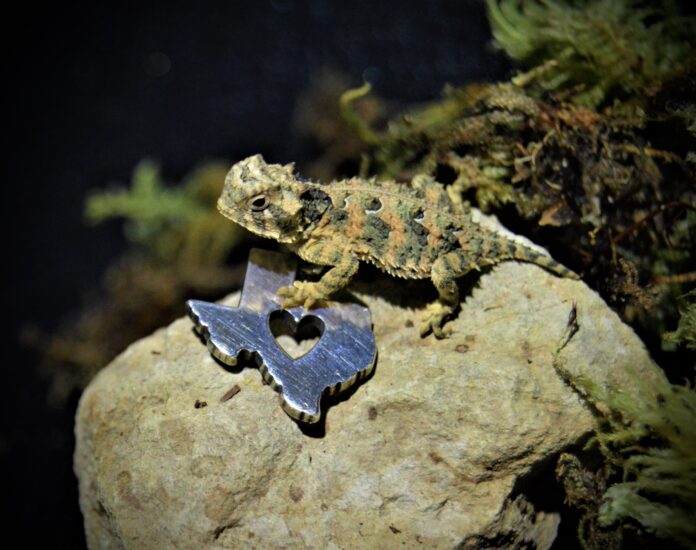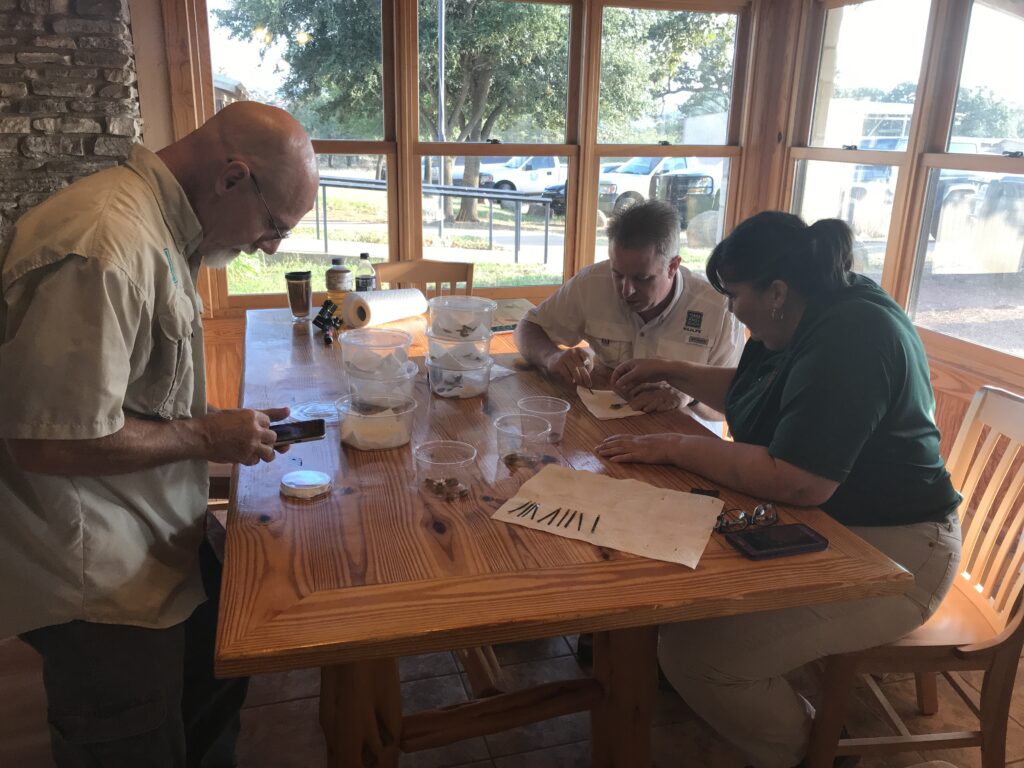The Texas horned lizard is making a comeback.
A coalition of zoos and wildlife scientists released 204 captive-raised hatchlings into the wild (100 of them hatched at the Fort Worth Zoo), the zoos announced on Sept. 16.
The release follows new evidence this year that previously released lizards are now reproducing. There’s also help in Washington, D.C. A landmark bipartisan proposal now moving through Congress, the Recovering America’s Wildlife Act, would bring the resources needed to save this species and hundreds like it.
Once common, the Texas horned lizard is now one of more than 1,300 species of concern across the state.
For more than 10 years, the Texas Horned Lizard Coalition, including Texas Parks and Wildlife Department, Texas Christian University and zoos in Fort Worth, Dallas, San Antonio and elsewhere, has been studying how to restore Texas horned lizards to formerly occupied habitats. Reintroduction efforts have happened at TPWD’s Mason Mountain and Muse Wildlife Management Areas (WMAs) where extensive habitat management and restoration have provided vital “new homes” for the lizard.
Researchers tried translocating adult lizards, capturing them in the wild and then releasing them on the WMAs. This provided a wealth of valuable data, but it also highlighted challenges. Many relocated lizards died, killed by predators. Normal wild mortality ranges from 70-90% and scientists have seen this with translocated adults. Also, capturing and translocating sufficient adults in the wild to establish self-sustaining populations may prove unsustainable long-term.
For these reasons, in recent years the focus has shifted to captive breeding Texas horned lizards at partner zoos, which makes it possible to breed and release hundreds of lizards at once. Texas horned lizards have large clutch sizes with many eggs, often with multiple clutches each year.
The Fort Worth Zoo developed the breeding and husbandry protocols required to successfully breed and care for these animals in managed collections. These practices have since been implemented and modeled at several zoos around the state. The Fort Worth Zoo has the longest-running captive breeding effort in Texas and, in fact, the zoo hatched its 1,000th Texas horned lizard last week.
This August at Mason Mountain WMA, after years of captive-raised hatchling releases, TPWD biologists and graduate students discovered a breakthrough milestone. They found 18 hatchlings believed to be offspring of zoo-raised hatchlings released in 2019. To their knowledge, this marks the first time that captive-reared horned lizards have survived long enough to successfully reproduce in the wild.
Biologists remain optimistic that continued research and restoration work will ultimately lead to self-sustaining wild populations of Texas horned lizards. But they say the Recovering America’s Wildlife Act would provide the funding needed to make this dream a reality. People can learn how to help in the online toolkit of the Texas Wildlife Alliance, a grass roots coalition formed to support RAWA.








